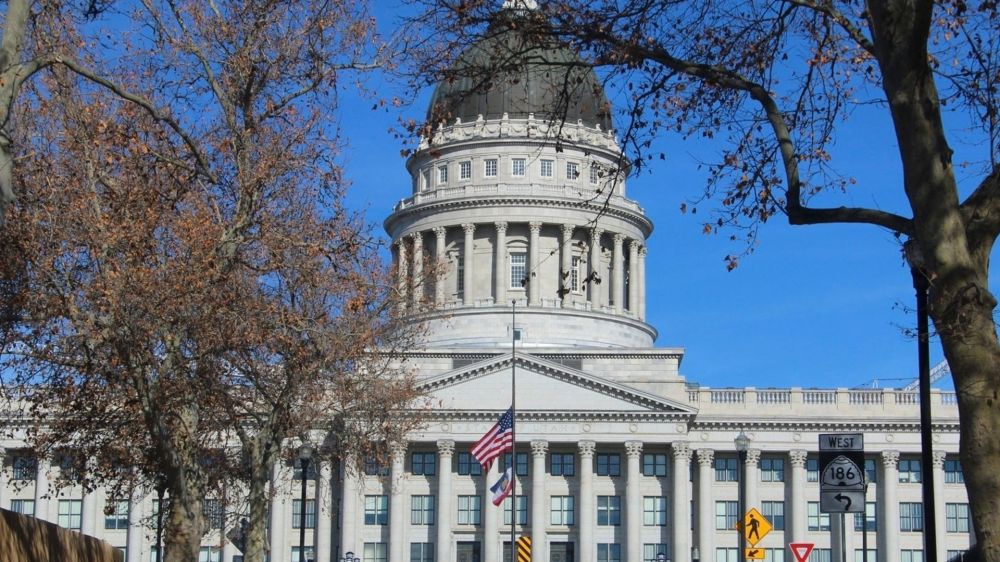- Utah has banned collective bargaining for public employees, including teachers, police officers, and firefighters, making it the third state in the U.S. to do so. Gov. Spencer Cox signed the bill Friday despite protests from unions and public workers.
- The law, which takes effect on July 1, prevents unions from negotiating wages and working conditions, a move supporters say protects taxpayers from costly agreements.
- Opponents, including the Utah Education Association, call the ban an attack on workers’ rights and are considering a ballot measure to overturn it.
Full Story
Utah has banned collective bargaining for public employees, making it the third state in the nation to do so. Gov. Spencer Cox signed the bill Friday, despite weeks of protests from labor unions representing teachers, police officers, and firefighters.
What Does the New Law Do?
The new law, which takes effect July 1, prohibits unions from negotiating wages and working conditions for public workers in Utah.
It passed quickly through the state’s Republican-controlled Legislature, with supporters arguing that collective bargaining creates a conflict of interest and could increase costs for taxpayers.
Why Are Unions Opposing the Ban?
Opponents, including the Utah Education Association (UEA), say the ban silences educators and prevents them from advocating for better pay and classroom conditions.
UEA President Renée Pinkney urged Gov. Cox to veto the bill, calling it a “blatant attack on public employees.”
During the bill signing, scores of union members held a silent protest outside the governor’s office. Some union leaders are now considering a ballot measure to overturn the law.
“It looks like Utah will become the most anti-labor state in America. Pathetic,” said Jack Tidrow, president of the Professional Firefighters of Utah.
What Do Supporters of the Law Say?
The Republican supermajority in Utah’s Legislature ensured the bill’s passage.
Rep. Jordan Teuscher, the bill’s sponsor, defended the measure, saying it “upholds democratic principles and expands individual freedoms.”
Supporters argue that allowing public-sector unions to negotiate contracts creates a conflict of interest, since taxpayer money funds public salaries.
Teuscher at a legislative hearing saying, “If the government were to negotiate a really bad deal, at the end of the line, it’s the taxpayers who have to pay the cost.”
Does the Law Completely Eliminate Unions?
The law does not abolish unions altogether, but it removes their ability to negotiate employment terms for public workers.
Supporters argue that employees can still organize and receive union support, but critics say that without collective bargaining rights, unions lose their most important tool for improving working conditions.
How Could This Affect the National Labor Movement?
Experts warn that Utah’s decision could set a precedent for other conservative states and reverse recent labor gains.
Sharon Block, executive director of the Center for Labor and a Just Economy at Harvard Law School, called the law a major blow to labor rights, saying, “this is an incredibly serious threat to the labor movement.
If more states follow Utah’s lead, public-sector workers could lose their most effective tool for negotiating fair wages and conditions.”
The law comes at a time when the National Labor Relations Board is facing upheaval, with recent firings under the Trump administration.
Labor leaders say these anti-union policies could weaken both private and public-sector bargaining power across the country.
What Happened in Other States?
Only North Carolina and South Carolina had previously banned public-sector collective bargaining outright.
In 2020, Virginia reversed a similar ban, leading some to believe labor rights were improving. Now, Utah’s move signals a possible reversal of that trend.
What’s Next for Public-Sector Unions in Utah?
Labor groups have vowed to fight the new law in the courts and through ballot measures.
Union leaders say they will mobilize voters and push for pro-worker candidates in future elections.
For now, teachers, police officers, and firefighters will lose collective bargaining rights when the law takes effect on July 1. The long-term impact on Utah’s public workforce remains to be seen.
 AP Images
AP Images
 AP Images
AP Images
 AP Images
AP Images